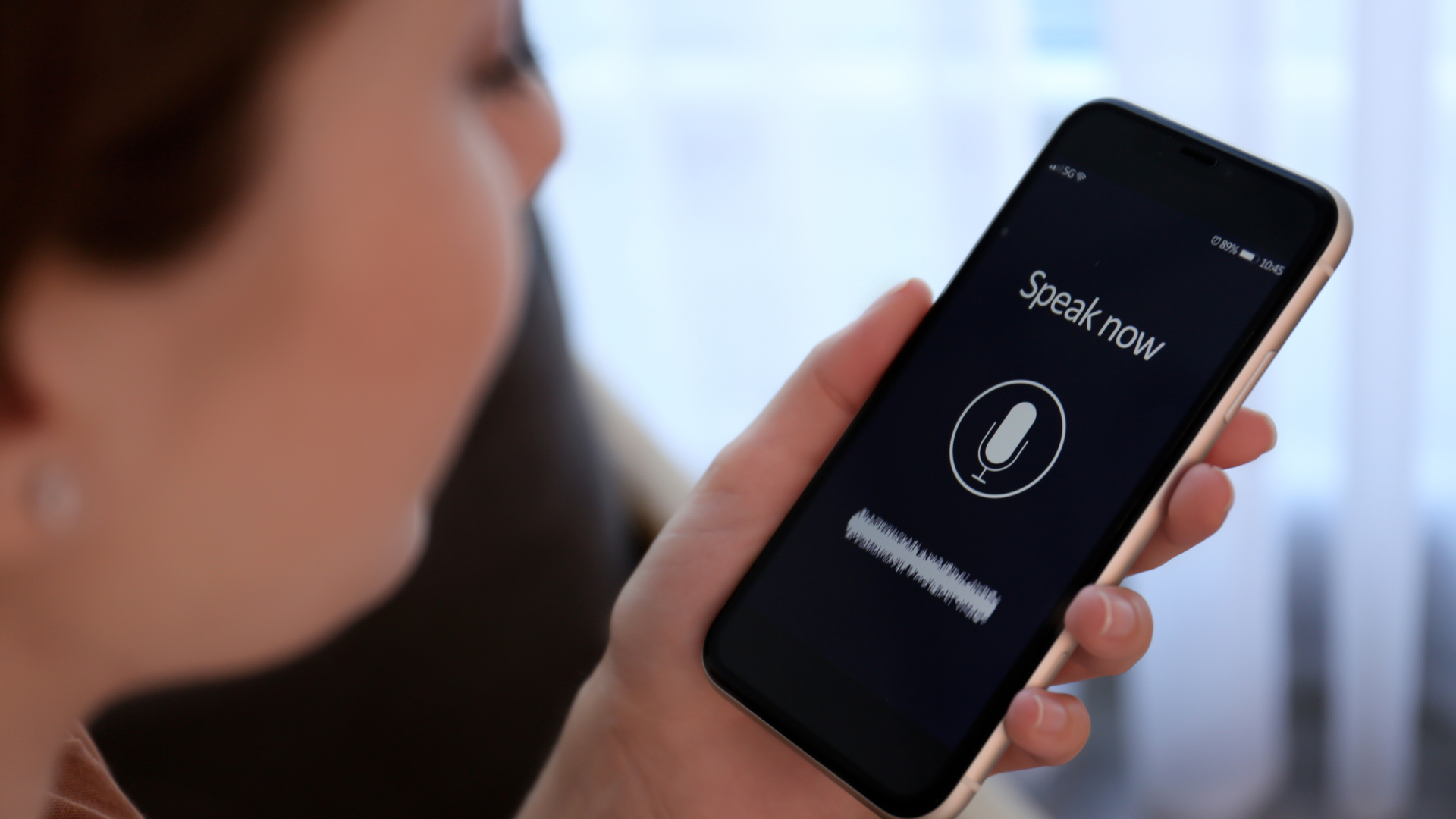How to Learn English Fast: 15 Simple Tips Anyone Can Use Today
Learning English quickly is a goal for millions of people around the world. Whether it's for work, study, travel, or personal growth, speaking English fluently opens doors. But many learners believe the only way to improve fast is to sit in a classroom for hours each week.
The truth? You don't need a classroom to make rapid progress. With the right strategies, tools, and daily habits, anyone can speed up their English learning from home, or anywhere.
In this article, we'll share 15 simple, practical tips that will help you build confidence, improve fluency, and learn English faster than you thought possible. These methods are easy to use, effective for all levels, and most importantly, they fit into your everyday life.
1. Speak English With Real People

The fastest way to improve your English is simple: use it in real conversations. Reading books and studying grammar helps, but nothing develops fluency like speaking with another person.
When you talk with real people, you:
- Learn the vocabulary that actually gets used in daily life.
- Pick up natural pronunciation, rhythm, and expressions.
- Build confidence by overcoming the fear of making mistakes.
You don't need to live in an English-speaking country to do this. Thanks to online platforms, you can connect with fluent speakers anytime, from anywhere in the world.
That's exactly why we built Learn Our Lingo, to create a place where anyone learning English can instantly find, chat with, and take lessons from native speakers. Practicing with other learners is also valuable, as you can support and motivate each other, ask questions, and share experiences to enhance your progress. Even short, 10–15 minute conversations on our platform can accelerate your progress more than hours of self-study.
Try to schedule at least a few minutes of speaking practice every day. The more often you use English in real life, the faster it becomes natural.
2. Immerse Yourself in English Media

If you want to learn English fast, surround yourself with the language every day. Engaging with content in the target language, such as podcasts, videos, and articles, accelerates learning. Immersion doesn't have to mean moving abroad, you can create an English-rich environment from home.
Watch Movies and TV Shows in English
Start with subtitles in your native language, then switch to English subtitles, and finally try without any at all. Watching movies and TV shows in English is an effective way to develop english comprehension, as it exposes you to natural speech patterns and a variety of accents.
Listen to Podcasts and Music
- Choose topics you enjoy so it feels less like study and more like entertainment.
- Practice active listening by focusing on pronunciation, intonation, and understanding different accents while listening to podcasts and music.
Read Short Content in English
Blogs, articles, or even social media posts can help you absorb new vocabulary naturally.
The more your brain is exposed to English, the faster it adapts. Even if you don't understand every word, you'll start recognizing patterns, pronunciation, and common phrases. BBC Learning English has some great free resources to get started with.
Pick one or two activities you already do daily (like watching YouTube or listening to music) and simply switch them to English. Consistency is what makes the difference.
3. Change Your Devices to English

One of the easiest ways to speed up your English learning is to make it your default language on the devices you use every day.
Switch your phone, laptop, or tablet settings to English. Update your social media apps, streaming services, and even your email account to show everything in English.
Why this works:
- You see and use English words in context constantly.
- Everyday tasks (like checking notifications or sending a message) become mini language lessons.
- You naturally learn the most common words and phrases without even trying.
At first, it might feel uncomfortable, but within a week or two you'll notice you're picking up new vocabulary simply by living your normal digital life.
Start with one device (like your phone). Once you feel comfortable, switch everything to English and your environment becomes your teacher.
4. Learn Useful Phrases, Not Just Words

Memorizing long lists of vocabulary can feel productive, but it doesn't always help you speak naturally. Instead, focus on learning phrases and chunks of language you'll actually use in conversation.
For example, instead of only knowing the word coffee, learn phrases like:
- Can I have a coffee, please?
- Would you like another cup of coffee?
- I don't drink coffee in the evening.
Phrases give you ready-made sentences you can use straight away, and they help you understand grammar in context without endless rule memorization.
Start building a personal phrasebook with expressions you need for travel, work, or daily life. Each time you encounter a new word in a phrase, write it down in context to reinforce memory and retention. When you practice these phrases often, speaking becomes quicker and more confident.
5. Use Spaced Repetition Apps

Repetition is key to remembering new vocabulary, but repeating at the right intervals is what makes words stick long term. That's where spaced repetition apps come in.
Tools like Anki, Memrise, or Quizlet show you new words just before you're about to forget them. This timing strengthens your memory more effectively than cramming. Using these apps regularly helps you learn fast by maximizing retention and recall.
With only 10–15 minutes a day, you can review dozens of words and phrases and keep them fresh in your mind. Over time, your vocabulary grows steadily without feeling overwhelming.
It's even more effective if you load these apps with the useful phrases you've collected instead of random word lists, that way, every review session brings you closer to real-life fluency.
6. Practice "Shadowing"

Shadowing is a powerful technique where you listen to spoken English and repeat it immediately, word for word. It helps you improve pronunciation, rhythm, and fluency all at once. This technique is especially effective for developing speaking skills such as pronunciation and fluency.
How to Try Shadowing
- Choose a short audio clip - a podcast snippet, a YouTube video, or even a line from a movie.
- Play a sentence and repeat it straight away, matching tone and speed as closely as possible.
- Keep going until you can follow along smoothly without pausing.
At first, it feels challenging, but after a few sessions you'll notice your mouth and ears adjusting to English naturally. It's like training your muscles to "think" in English.
You don't need hours of practice - just a few minutes daily makes your spoken English clearer and more confident.
7. Keep a Daily English Journal

Writing a little bit of English every day is one of the fastest ways to build grammar and vocabulary. A journal doesn't have to be long, even three or four sentences about your day is enough.
This habit helps you:
- Think directly in English instead of translating from your native language.
- Practice using new words and phrases in context.
- Notice common mistakes and improve them over time.
You can start simple: write what you did that morning, how you feel, or what you plan to do tomorrow. Over time, your sentences will naturally become longer and more complex.
Reviewing older entries after a few weeks is also motivating, you'll clearly see how much your English has improved.
8. Record Yourself Speaking

One of the quickest ways to spot your own progress is by recording yourself. When you listen back, you'll notice things you might miss while speaking, like unclear pronunciation, repeated filler words, or pauses. Pay special attention to whether your pronunciation is clear enough to be easily understood by others, as effective communication depends on being understood.
Start simple: record yourself reading a short text or talking about your day for one minute. Then listen carefully and compare it to how a native speaker might say the same thing.
This practice gives you two big benefits:
- You become more aware of your strengths and weaknesses.
- You can track progress over time by comparing old and new recordings.
It's motivating to hear your own improvement, and it also builds confidence when you realize your English sounds better than you thought.
9. Find a Language Partner

Learning English doesn't have to be a solo journey, in fact, it's much faster when you practice with another person. A language partner gives you accountability, conversation practice, and the chance to learn from each other.
You can find partners in online communities, local meetups, or through dedicated platforms. The key is consistency: even short chats a few times a week keep your skills sharp and your motivation high.
That's exactly the idea behind Learn Our Lingo, it connects learners directly with fluent English speakers for natural conversations. Whether you're looking for casual practice or structured sessions, having a partner makes speaking English part of your daily routine.
Even just 10 minutes of back-and-forth conversation can make a bigger impact than hours of studying alone.
10. Set Small Daily Goals

Big goals like "become fluent in six months" can feel overwhelming. Instead, focus on small, achievable goals that move you forward a little each day.
For example:
- Learn and use 5–10 new words.
- Speak English for 5 minutes with a partner.
- Write one short journal entry.
- Watch a video and summarize it in English.
- Practice a specific skill, such as reading an article aloud to improve pronunciation or having a short conversation to develop your speaking skill.
These mini-goals keep you motivated because you can actually check them off. Over time, small wins add up to big progress, and you'll be surprised how quickly your confidence grows.
When you meet your daily goals, reward yourself. Linking positive feelings with practice makes you more likely to keep going.
11. Learn by Teaching

One of the best ways to learn something deeply is to teach it to someone else. When you explain English words, grammar, or phrases in your own words, you reinforce your understanding and remember it longer. Explaining English concepts to someone whose first language is not English can also deepen your own understanding and highlight areas where you may need improvement.
This doesn't mean you have to be a professional teacher. You can:
- Explain a new phrase to a friend who's also learning.
- Teach a family member a few English words.
- Record yourself explaining a grammar point and listen back.
Teaching forces you to organize your thoughts and check whether you really understand. If you struggle to explain clearly, it shows you where you need more practice, which helps you focus on the right areas.
It's a simple but powerful trick: by helping others learn, you strengthen your own English faster.
12. Use English at Work or Study

The fastest progress comes when you connect English to your real life. If you're working or studying, look for chances to use English in everyday tasks. In a school setting, try participating in class discussions or completing assignments in English to make the most of your learning environment.
Try writing emails in English, taking notes from lectures or meetings in English, or even setting reminders on your calendar in English. These small changes make the language practical and relevant, which helps it stick.
If you don't usually need English for work or study, create your own opportunities. For example, research a topic in English, write a short summary, or present your findings to a friend.
By weaving English into your daily responsibilities, you'll not only learn faster but also gain skills that directly benefit your career or education.
13. Play Games or Join Online Communities

Learning English doesn't always have to feel like studying, it can be fun too. Online games, forums, and communities give you the chance to practice English in a relaxed, social environment.
For example:
- Join a multiplayer game and chat with other players in English.
- Take part in discussions on Reddit, Discord, or Facebook groups.
- Comment on YouTube videos or contribute to an online hobby community.
Many of the tips and strategies you use in these English-speaking communities can also be applied to learning other languages, as the process of engaging with native speakers and participating in discussions is similar across different languages.
Because you're focused on having fun or sharing interests, you'll naturally pick up new words and expressions without the pressure of "learning." This informal practice helps you sound more natural and keeps you motivated to keep using English every day.
14. Don't Fear Mistakes

One of the biggest obstacles to learning English fast isn't grammar or vocabulary, it's fear. English grammar has many exceptions, which can make it challenging and lead to mistakes even for advanced learners. Many learners hold back from speaking because they worry about making mistakes. But the truth is, mistakes are a normal and necessary part of the learning process.
Every error shows you what to improve, and every correction brings you closer to fluency. Native speakers won't expect you to be perfect, they'll often appreciate your effort and encourage you.
Instead of avoiding mistakes, embrace them as proof that you're practicing. The more you speak, write, and experiment with English, the faster you'll improve. Confidence grows not from avoiding errors, but from moving through them.
15. Create a 30-Day Challenge

Setting yourself a short, focused challenge is a great way to build momentum and see fast results. A 30-day plan keeps you motivated, gives you structure, and turns English into a daily habit. Taking on a 30-day challenge is also an effective way to immerse yourself in a new language and accelerate your progress.
Example 30-Day Plan
- Week 1: Listen to English for 10 minutes a day and speak for 5 minutes.
- Week 2: Add daily journaling, write a few sentences about your day.
- Week 3: Have short conversations with a partner 3 times a week.
- Week 4: Increase speaking practice to 20–30 minutes a day and review all the vocabulary you've learned.
At the end of the month, you'll be amazed at how much progress you've made. Challenges like this give you a clear goal and stop you from procrastinating. And if you repeat the cycle, your English will only get stronger.
Start Learning Faster Today
Learning English fast doesn't require a classroom, expensive courses, or years of study. What really matters is building habits that keep you speaking, listening, and thinking in English every single day.
These tips are specifically designed to help English learners of all backgrounds achieve their language goals quickly and effectively.
In this guide, we covered 15 simple tips that anyone can use, from speaking with real people and immersing yourself in media, to using apps, journaling, and setting a 30-day challenge. Each strategy is practical, flexible, and designed to fit into your daily life.
The fastest way forward is to combine these approaches and stay consistent. Even a few minutes a day can create steady progress when you focus on real communication instead of perfection.
If you're ready to put these tips into action, the best step you can take is to start speaking with real English speakers today on Learn Our Lingo. Here you can connect directly with fluent speakers for natural, everyday conversations. It's the most effective (and fun) way to accelerate your English learning.
Don't wait for the "perfect time" to begin practicing today, and you'll be surprised at how quickly your confidence grows.